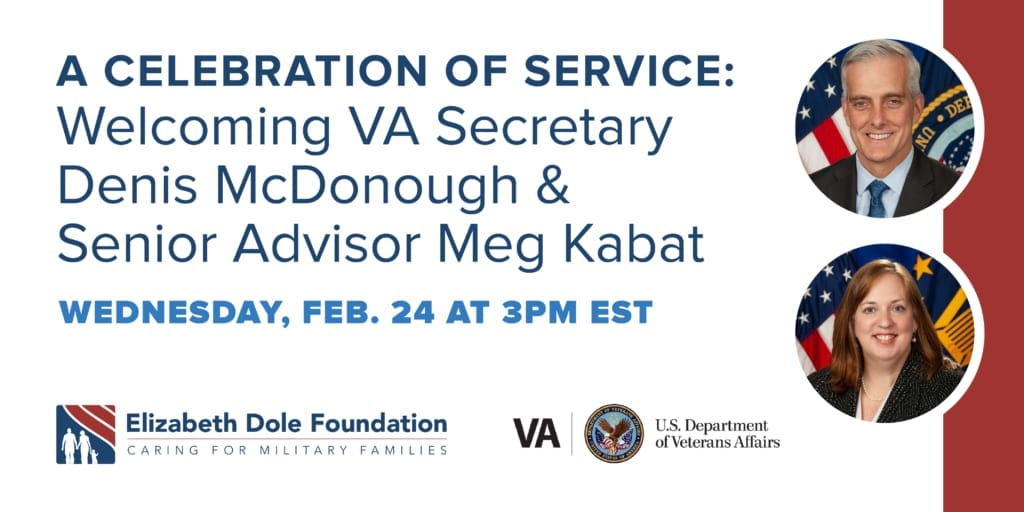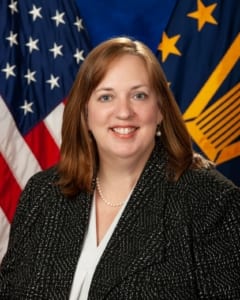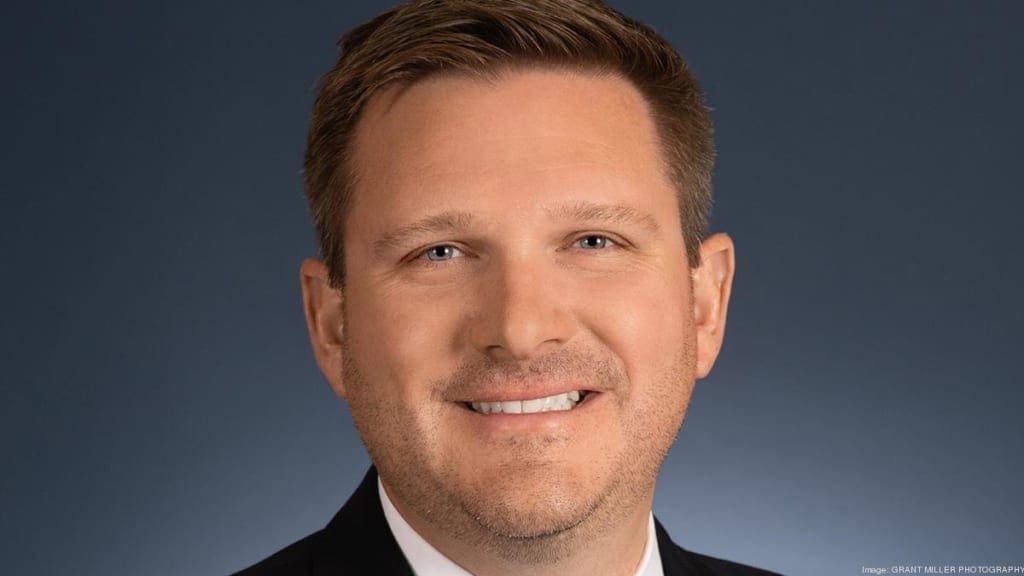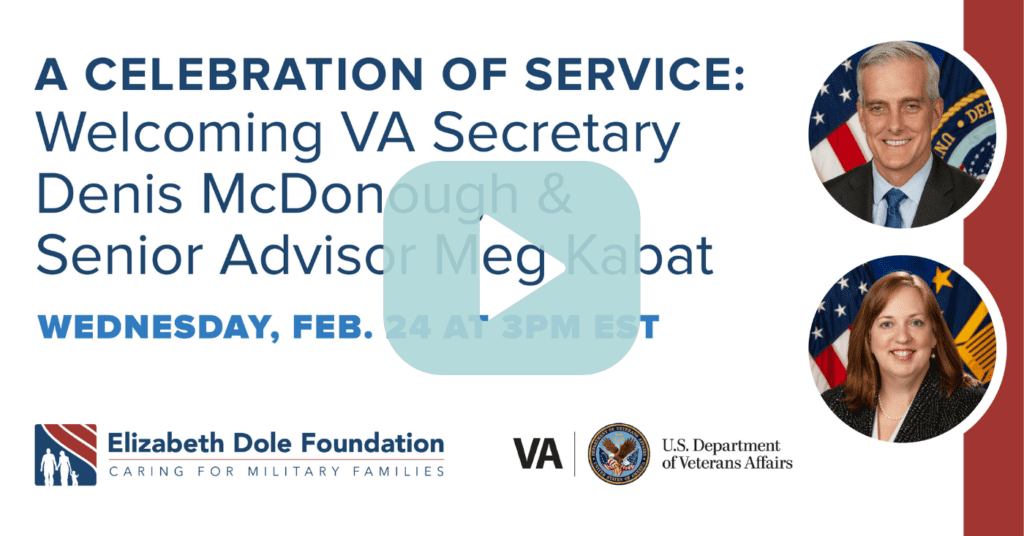A New Era of Support for Military and Veteran Caregivers, Family Members, and Survivors
On February 24, the Elizabeth Dole Foundation hosted the newly appointed U.S. Department of Veterans Affairs Secretary Denis McDonough and Senior Advisor to the Secretary for Families, Caregivers, and Survivors Meg Kabat for a Celebration of Service welcoming them to their new roles in the Administration. This was the first opportunity for the military, veteran, caregiver, and survivor communities to connect directly with new VA senior leadership and engage in an important dialogue about the road ahead.
A Vision for 2021
Secretary McDonough and Kabat shared their vision for 2021 and beyond, highlighting key priorities such as implementation of the Foundation’s Campaign for Inclusive Care; inclusion of veterans and caregivers of all eras in the MISSION Act; and understanding the impact of caregiving on veterans’ children and how VA and it’s partners can better support these hidden helpers.
“It’s an honor to be formally welcomed to this family, and it’s an honor of a lifetime to be able to lead the VA to support you as we work to serve veterans as well as they have served us,” said Secretary McDonough.
Secretary McDonough says President Joe Biden gave him a clear mission to be a fierce, staunch advocate for veterans and their families, and to keep faith with those caring for a loved one who served. During his Senate confirmation hearing in January, McDonough made his intentions clear, “I will work tirelessly to build and restore VA’s trust as the premier agency for ensuring the well being of America’s Veterans. After all, there is no more sacred obligation nor noble undertaking than to uphold our promises to our veterans, whether they came home decades ago or days ago.”
“To all the caregivers and survivors, thank you for what you do each and every day. The fact is that no one more completely fulfills President Lincoln’s charge to care for those who’ve borne the battle than you, each and every single day.” – Sec. McDonough
Throughout the Celebration of Service, EDF CEO Steve Schwab and TAPS President & Founder Bonnie Carroll identified critical efforts underway with the new Administration and new opportunities to enhance support for veteran families, caregivers, and survivors.
An Inaugural Role at the VA
This event marked a special moment for the caregiver community. The Foundation has long advocated for a senior-level role, directly advising the Secretary on the challenges veterans’ families, caregivers, and survivors face. “Not only has the Biden Administration created the position, but they couldn’t have picked a more qualified person for the role. Meg has long been a passionate supporter of military and veteran families, as well as a great friend to so many of us,” says Schwab.
“The President is demanding we leverage Meg’s unique skill set, which includes the fact that she’s a licensed clinical social worker where she’s worked at private organizations, her service at VA as National Director of the Caregiver Support Program, her wide-ranging knowledge of this department and this building, and perhaps most importantly, her caring, compassionate, empathetic nature,” says Secretary McDonough.
“I wanted to serve caregivers and families of veterans in a more holistic way,” says Kabat. “The country and the world has been through so much over the past year. It’s a time for us all to come together, and there’s been these moments of hope and excitement when we come together.”
To further understand the goals of the new Administration, Schwab led a Q&A with Kabat.
Here’s a recap of their conversation.
STEVE SCHWAB: This is a first ever role for the VA and your background speaks for itself. You left the VA in 2019 – what made you want to come back? Why did you want this job?
MEG KABAT: I knew I would be back at some point in some capacity. I was inspired by then President-Elect Biden and so honored to lead the agency review team, and got hungry to come back.
The first time I talked to [Sec. McDonough] and hear him talk about ‘a whole of government’ approach to all kinds of different issues was so exciting. There’s so much going on around family caregiving, around grief, suicide prevention, and VA does really great work. At the same time, there’s other great work going on in other places. Secretary McDonough is going to push me toward whole of government solutions.
SS: As you are thinking about 2021 and what you want to accomplish, what are the top priorities for this group?
MK: There’s a lot. I’m going to ask you to be patient, but to also hold me accountable. Folks will say VA doesn’t have the authority to do that; to treat children, to work with children, to treat families, to work with spouses. There are certain authorities, and VA has its laws and regulations we need to follow. With that being said, we can do quite a bit to support families and we do a lot. We can be doing more.
We want to work across the agency and all the administrations to highlight the things we can do to offer a solution. Sitting in the office of the Secretary allows me a bit more authority to bring groups together, talk about things, and get to ‘yes.’
I want to find areas of opportunity, establish a strong partnership with Joining Forces, policy work, and have a lasting impact; and also [work with] DoD, another piece of the puzzle to spend time on. I want to make sure we’re collaborating with them and make the family transition smooth.
Families get a lot of support and services when they’re part of an active duty family. A lot of it falls to the side when they leave. We can lift up those families through strategic partnerships and programs.
SS: You’re coming in at a pretty critical moment for caregivers with the MISSION Act expansion. The Program of Comprehensive Assistance for Family Caregivers (PCAFC) has seen a number of delays over the last two years – how is the new leadership at the VA going to shift course?
MK: There’s been a lot of work around streamlining processes so each vision or region has a Caregiver Support Coordinator (CSC) lead, and staff has grown significantly. I’m excited about the ability for [PCAFC] to put [forth] programs that support all caregivers, regardless of whether or not they qualify for PCAFC.
Almost a quarter of veterans report they require assistance from someone to be at home safely. Even in its biggest estimates around PCAFC, we would only touch a fraction of that group. It’s important to offer different services for caregivers.
One area I want to focus on is supporting veterans who care for their spouse or an adult child. If we truly buy into this belief that caregiving is something that impacts one’s health, then we need to think about the health of the veteran as well. The good news is when there’s an advocate at a different level, it’s easier to get things done.
From the afternoon of January 20th, I began reaching out to folks in the caregiver program, the program’s leadership, and up the chain of command, figuring out ways I can be supportive in identifying the issues where there are challenges so I can help fix the challenges and they can continue the good work they’re doing. It’s hard to keep moving such a big program when you’re getting sidetracked by crises along the way. As I help with the crises, we’re going to move forward.
Listen to the full Q&A here.
Introducing the Secretary and First-Ever Senior Advisor for Families, Caregivers, and Survivors
 Secretary Denis McDonough
Secretary Denis McDonough
The Honorable Denis Richard McDonough is the 11th Secretary of Veterans Affairs. He served in the Obama Administration as the 26th White House Chief of Staff from February 2013 to January 2017, after serving as Principal Deputy National Security Advisor, as well as Chief of Staff of the National Security Staff and as the Deputy National Security Advisor for Strategic Communications. Throughout his service in the White House, Secretary McDonough helped lead the Obama-Biden administration’s work on behalf of military families and Veterans. Before his eight-year tenure in the White House, Secretary McDonough served in senior leadership and policymaking positions in the U.S. House of Representatives and the U.S. Senate.
He grew up in Minnesota in a family of 11 children, graduated from St. Johns University in Collegeville, Minnesota, and earned his master’s degree from Georgetown University.
 Senior Advisor Meg Kabat
Senior Advisor Meg Kabat
Meg Kabat, LCSW, led the Biden Administration’s transition team for the Department of Veterans Affairs. Previously, Kabat served as Senior Director of Atlas Research where she provided valuable insights that supported the company’s clients’ and enabled Atlas Research to deliver advanced care solutions. Before joining, Kabat served as the national director of the VA Caregiver Support Program. In this role, she was the principal advisor on family caregiving to senior leaders across the VA. Kabat joined the Caregiver Support Program in 2011, serving as its deputy director. Kabat served as an advocate for ill and injured service members enrolled in the Federal Recovery Care Coordination Program at the National Naval Medical Center. She managed the transition of active duty service members’ health care to a Veterans Health Administration facility.
Kabat graduated from the College of the Holy Cross with a Bachelor of Arts in psychology and from the Catholic University of America where she earned a Master of Social Work.
Introducing the New Director of VA’s Caregiver Support Program
The Administration also introduced caregivers to the new Director of the VA’s Caregiver Support Program. Dr. Colleen Richardson—a psychologist by training, a Navy veteran, and whose husband currently serves in the U.S. Marine Corps—has dedicated her entire career to serving the military community; veterans, families, and caregivers.
“[Dr. Richardson is] going to bring a whole breadth of understanding and real commitment to this program,” says Kabat, who previously held the position.
Dr. Richardson is thrilled to work with veteran and military service organizations to include their perspectives, bettering the Caregiver Support Program. “Thank all of you for what you do everyday to support my veteran brothers and sisters.”
Introducing the New Chief Veterans Experience Officer
John Boerstler was appointed as the VA’s new Chief Veterans Experience Officer. Prior to dedicating his post-military career to leading VSOs, Boerstler served in the U.S. Marine Corps. Most recently, he served as CEO of the non profit Combined Arms, assisting veterans with transitioning into civilian life.
“We’ve got to set the tone from day one that veterans’ experience means the experience of all of those who support the veteran, as well. VEO has done amazing work around caregivers. They provide a lot of support to the Federal Advisory Committee, and well beyond that, they have produced different kinds of materials and things that help caregivers get settled into VA. We want to take all that and expand on it; make sure we’re incorporating that family perspective,” says Kabat.
Schwab says the Elizabeth Dole Foundation and our countless public and private sector partners are ready to assist the Administration in transforming the VA into a world class institution. “Secretary McDonough, on behalf of the leaders across our community assembled today, we stand ready to support you and your team to deliver on your mission.”
Rewatch the recording anytime on our YouTube channel.
To make sure you receive an invite to our next Celebration of Service virtual event, register for our newsletter here: hiddenheroes.org/register.
Special thanks to our partners at the U.S. Department of Veterans Affairs for making this welcome reception possible. We’d also like to recognize our guests and thank them for their time:
- Denis McDonough, Secretary of Veterans Affairs
- Meg Kabat, Senior Advisor to the Secretary for Families, Caregivers, & Survivors
- Steve Schwab, Chief Executive Officer, Elizabeth Dole Foundation
- Bonnie Carroll, President & Founder, TAPS
- Dr. Colleen Richardson, Director, VA Caregiver Support
- John Boerstler, Chief Veterans Experience Officer






 Secretary Denis McDonough
Secretary Denis McDonough Senior Advisor Meg Kabat
Senior Advisor Meg Kabat




